154 start with F start with F
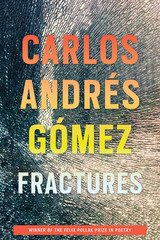

The assimilated assimilator.
Quintus Ennius (239–169 BC), widely regarded as the father of Roman literature, was instrumental in creating a new Roman literary identity and inspired major developments in Roman religion, social organization, and popular culture. Born in the Calabrian town of Rudiae in Magna Graecia, Ennius claimed descent from Messapus, eponymous hero of Messapia, and was uncle to the tragic dramatist Pacuvius. Brought in 204 from Sardinia to Rome in the entourage of Cato, Ennius took up independent residence on the Aventine and, fluent in his native Oscan as well as Greek and Latin, became one of the first teachers to introduce Greek learning to Romans through public readings of Greek and Latin texts. Transcending partisan interests, Ennius cultivated familiar relationships with several of Rome’s most distinguished families, including that of Marcus Fulvius Nobilior, through whose patronage he eventually attained Roman citizenship.
Best known for domesticating Greek epic and drama, Ennius also pursued a wide range of literary endeavors and, with the apparent exception of comedy, found success in all of them. He thus played a major role in setting Latin literature on the assimilationist course that was to be its hallmark throughout the Republican period. His tragedies were long regarded as classics of the genre, and his Annals gave Roman epic its canonical shape and pioneered many of its most characteristic features. Other endeavors included philosophical works in prose and verse, epigrams, didactic poems, dramas on Roman themes (praetextae), and occasional poetry that informed the later development of satire.
This two-volume edition of Ennius, which inaugurates the Loeb series Fragmentary Republican Latin, replaces that of Warmington in Remains of Old Latin, Volume I and offers fresh texts, translations, and annotation that are fully current with modern scholarship.

The assimilated assimilator.
Quintus Ennius (239–169 BC), widely regarded as the father of Roman literature, was instrumental in creating a new Roman literary identity and inspired major developments in Roman religion, social organization, and popular culture. Born in the Calabrian town of Rudiae in Magna Graecia, Ennius claimed descent from Messapus, eponymous hero of Messapia, and was uncle to the tragic dramatist Pacuvius. Brought in 204 from Sardinia to Rome in the entourage of Cato, Ennius took up independent residence on the Aventine and, fluent in his native Oscan as well as Greek and Latin, became one of the first teachers to introduce Greek learning to Romans through public readings of Greek and Latin texts. Transcending partisan interests, Ennius cultivated familiar relationships with several of Rome’s most distinguished families, including that of Marcus Fulvius Nobilior, through whose patronage he eventually attained Roman citizenship.
Best known for domesticating Greek epic and drama, Ennius also pursued a wide range of literary endeavors and, with the apparent exception of comedy, found success in all of them. He thus played a major role in setting Latin literature on the assimilationist course that was to be its hallmark throughout the Republican period. His tragedies were long regarded as classics of the genre, and his Annals gave Roman epic its canonical shape and pioneered many of its most characteristic features. Other endeavors included philosophical works in prose and verse, epigrams, didactic poems, dramas on Roman themes (praetextae), and occasional poetry that informed the later development of satire.
This two-volume edition of Ennius, which inaugurates the Loeb series Fragmentary Republican Latin, replaces that of Warmington in Remains of Old Latin, Volume I and offers fresh texts, translations, and annotation that are fully current with modern scholarship.

Three foundational Roman poets.
The Loeb Classical Library series Fragmentary Republican Latin continues with three highly influential pioneers in the creation and development of Latin poetry.
Livius Andronicus (born ca. 292 BC) was regarded by the Romans as the founder of Latin literature, introducing tragedy and comedy, adapting Homer’s Odyssey into Saturnian verse, and composing a nationally important hymn for Juno. A meeting place for writers and actors was established in the temple of Minerva on the Aventine in recognition of his poetic achievements.
Naevius (born ca. 280–260), though most famous for his comedies, also wrote tragedy and epic. He innovated by incorporating Roman material into his Greek models and writing on Roman subjects independently. The inventor of the fabula praetexta, drama on a Roman theme, he also introduced new topics to Roman tragedy, especially those relating to Troy, and his Punic War, the first epic on a Roman historical subject, was a longtime school text and a favorite of Augustus.
Caecilius (born probably in the 220s), a friend of the older Ennius, excelled at comedy, of which he was Rome’s leading exponent during his career, and was so considered by posterity. Caecilius continued the Naevian practice of inserting Roman allusions into his works and was admired by later critics particularly for his substantive and well-constructed plots, and for his ability to arouse emotion.
The texts are based on the most recent and reliable editions of the source authors and have been revised, freshly translated, and amply annotated in light of current scholarship.

Tantalizing quotations from lost tragedies.
Aeschylus (ca. 525–456 BC), the dramatist who made Athenian tragedy one of the world’s great art forms, witnessed the establishment of democracy at Athens, fought against the Persians at Marathon and probably also at Salamis, and had one of his productions sponsored by the young Pericles. He was twice invited to visit Sicily, and it was there that he died. At Athens he competed for the tragic prize at the City Dionysia about nineteen times between circa 499 and 458, and won it on thirteen occasions; in his later years he was probably victorious almost every time he put on a production, though Sophocles beat him at least once.
Of his total of about eighty plays, seven survive complete. The first volume of this new Loeb Classical Library edition contains fresh texts and translations by Alan H. Sommerstein of Persians (472), on the recent war, the only surviving Greek historical drama; Seven against Thebes (467), the third play of a trilogy, on the conflict between Oedipus’ sons which ends when they kill each other; Suppliants, the first or second play of a trilogy, on the successful appeal by the daughters of Danaus to the king and people of Argos for protection against a forced marriage to their cousins (whom they will later murder, all but one); and Prometheus Bound (of disputed authenticity), on the terrible punishment of Prometheus for giving fire to humans in defiance of Zeus (with whom he will later be reconciled after preventing his overthrow). The second volume contains the complete Oresteia trilogy (458), comprising Agamemnon, Libation-Bearers, and Eumenides, presenting the murder of Agamemnon by his wife, the revenge taken by their son Orestes, the pursuit of Orestes by his mother’s avenging Furies, his trial and acquittal at Athens, Athena’s pacification of the Furies, and the blessings they both invoke upon the Athenian people.
This edition’s third volume offers all the major fragments of lost Aeschylean plays, with brief headnotes explaining what is known, or can be plausibly inferred, about their content, and bibliographies of recent studies.

The master of Old Comedy.
The eleven plays by Aristophanes that have come down to us intact brilliantly illuminate the eventful period spanned by his forty-year career, beginning with the first production in 427 BC. But the Athenians knew much more of his work: over forty plays by Aristophanes were read in antiquity, of which nearly a thousand fragments survive. These provide a fuller picture of the poet’s ever astonishing comic vitality and a wealth of information and insights about his world. Jeffrey Henderson’s new, widely acclaimed Loeb edition of Aristophanes is completed by this volume containing what survives from, and about, his lost plays, hitherto inaccessible to the nonspecialist, and incorporating the enormous scholarly advances that have been achieved in recent years.
Each fragmentary play is prefaced by a summary of what can be inferred about its plot, characters, themes, theatricality, and topical significance. Also included in this edition are the ancient reports about Aristophanes’ life, works, and influence on the later comic tradition.

Ancient Athens’ most successful tragedian.
Sophocles (497/6–406 BC), the second of the three great tragedians of Athens and by common consent one of the world's greatest poets, wrote more than 120 plays. Only seven of these survive complete, but we have a wealth of fragments, from which much can be learned about Sophocles' language and dramatic art. This volume presents a collection of all the major fragments, ranging in length from two lines to a very substantial portion of the satyr play The Searchers. Prefatory notes provide frameworks for the fragments of known plays.
Many of the Sophoclean fragments were preserved by quotation in other authors; others, some of considerable size, are known to us from papyri discovered during the past century. Among the lost plays of which we have large fragments, The Searchers shows the god Hermes, soon after his birth, playing an amusing trick on his brother Apollo; Inachus portrays Zeus coming to Argos to seduce Io, the daughter of its king; and Niobe tells how Apollo and his sister Artemis punish Niobe for a slight upon their mother by killing her twelve children. Throughout the volume, as in the extant plays, we see Sophocles drawing his subjects from heroic legend.
This is the final volume of Lloyd-Jones's Loeb Classical Library edition of Sophocles. In Volumes I and II he gives a faithful and very skillful translation of the seven surviving plays. Volume I contains Oedipus Tyrannus, Ajax, and Electra. Volume II contains Oedipus at Colonus, Antigone, The Women of Trachis, and Philoctetes.
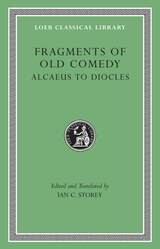
Laughter in stitches.
The era of Old Comedy (ca. 485 – ca. 380 BC), when theatrical comedy was created and established, is best known through the extant plays of Aristophanes, but there were many other poets whose comedies survive only in fragments. This new Loeb edition, the most extensive selection of the fragments available in English, presents the work of more than fifty-five poets, including Cratinus and Eupolis, the other members (along with Aristophanes) of the canonical Old Comic triad.
For each poet and play there is an introduction, and for many there are brief notes and recent bibliography. Also included are a selection of ancient testimonia to Old Comedy, nearly one hundred unattributed fragments (both book and papyri), and descriptions of thirty vase paintings illustrating Old Comic scenes. The texts are based on the monumental edition of Kassel and Austin, updated to reflect the latest scholarship. The complete Loeb Fragments of Old Comedy is in three volumes.
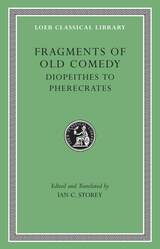
Laughter in stitches.
The era of Old Comedy (ca. 485 – ca. 380 BC), when theatrical comedy was created and established, is best known through the extant plays of Aristophanes, but there were many other poets whose comedies survive only in fragments. This new Loeb edition, the most extensive selection of the fragments available in English, presents the work of more than fifty-five poets, including Cratinus and Eupolis, the other members (along with Aristophanes) of the canonical Old Comic triad.
For each poet and play there is an introduction, and for many there are brief notes and recent bibliography. Also included are a selection of ancient testimonia to Old Comedy, nearly one hundred unattributed fragments (both book and papyri), and descriptions of thirty vase paintings illustrating Old Comic scenes. The texts are based on the monumental edition of Kassel and Austin, updated to reflect the latest scholarship. The complete Loeb Fragments of Old Comedy is in three volumes.
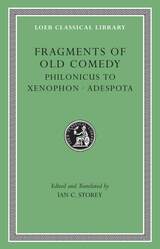
Laughter in stitches.
The era of Old Comedy (ca. 485 – ca. 380 BC), when theatrical comedy was created and established, is best known through the extant plays of Aristophanes, but there were many other poets whose comedies survive only in fragments. This new Loeb edition, the most extensive selection of the fragments available in English, presents the work of more than fifty-five poets, including Cratinus and Eupolis, the other members (along with Aristophanes) of the canonical Old Comic triad.
For each poet and play there is an introduction, and for many there are brief notes and recent bibliography. Also included are a selection of ancient testimonia to Old Comedy, nearly one hundred unattributed fragments (both book and papyri), and descriptions of thirty vase paintings illustrating Old Comic scenes. The texts are based on the monumental edition of Kassel and Austin, updated to reflect the latest scholarship. The complete Loeb Fragments of Old Comedy is in three volumes.

Lost works by ancient Greece’s third great tragedian.
Eighteen of the ninety or so plays composed by Euripides between 455 and 406 BC survive in a complete form and are included in the preceding six volumes of the Loeb Euripides. A further fifty-two tragedies and eleven satyr plays, including a few of disputed authorship, are known from ancient quotations and references and from numerous papyri discovered since 1880. No more than one-fifth of any play is represented, but many can be reconstructed with some accuracy in outline, and many of the fragments are striking in themselves. The extant plays and the fragments together make Euripides by far the best known of the classic Greek tragedians.
This edition, in a projected two volumes, offers the first complete English translation of the fragments together with a selection of testimonia bearing on the content of the plays. The texts are based on the recent comprehensive edition of R. Kannicht. A general Introduction discusses the evidence for the lost plays. Each play is prefaced by a select bibliography and an introductory discussion of its mythical background, plot, and location of the fragments, general character, chronology, and impact on subsequent literary and artistic traditions.

Lost works by ancient Greece’s third great tragedian.
Eighteen of the ninety or so plays composed by Euripides between 455 and 406 BC survive in a complete form and are included in the preceding six volumes of the Loeb Euripides. A further fifty-two tragedies and eleven satyr plays, including a few of disputed authorship, are known from ancient quotations and references and from numerous papyri discovered since 1880. No more than one-fifth of any play is represented, but many can be reconstructed with some accuracy in outline, and many of the fragments are striking in themselves. The extant plays and the fragments together make Euripides by far the best known of the classic Greek tragedians.
This edition, in a projected two volumes, offers the first complete English translation of the fragments together with a selection of testimonia bearing on the content of the plays. The texts are based on the recent comprehensive edition of R. Kannicht. A general Introduction discusses the evidence for the lost plays. Each play is prefaced by a select bibliography and an introductory discussion of its mythical background, plot, and location of the fragments, general character, chronology, and impact on subsequent literary and artistic traditions.

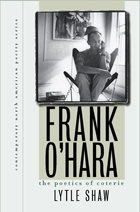
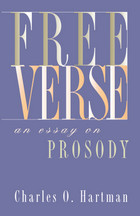
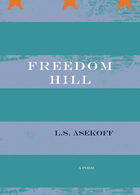
Winner, 2012 Witter Bynner Award and Fellowship
L. S. Asekoff's Freedom Hill is a dramatic monologue divided into three sections. The first concerns the speaker's visit with his aging parents and the death of his father. The second, set at an art party, is a meditation on women, desire, and the nature of the self. In the third, we witness the effects on the speaker of a cerebral stroke, along with his gradual recovery. As readers of Asekoff's unique body of work have come to expect, this highly allusive poem encompasses a wide range of subject matter: Heidegger, C-SPAN, modern art, aging, capitalism, religion. Also familiar will be Asekoff's great variety of tone and verbal ingenuity. Although indebted to high modernism, Freedom Hill is an ambitious, thoroughly contemporary meditation on issues very much of the present.
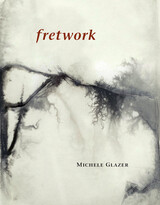
Fretwork hazards a response to its dilemma by turning, skeptically and resiliently, toward the materials of lyric poetry and empathetic action, however fragmented and fragile. Glazer’s poems are sculpted word by word, their forms evoking both organic process and machined exactness. Their voice blends command and humility, openness and terseness, generosity and rigor, gravity and mordant humor.
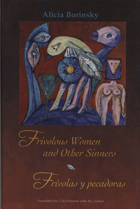
Frivolous Women invites us to visit the darker and lighter sides of laughter and love and feel the tenderness of recovered memories as we cross the bridges of relationships and stroll down the mysterious streets of childhood. Alicia Borinsky reminds us that the revelations of poetry are always intimate and dangerous. Cola Franzen’s agile and insightful translation, crafted in close collaboration with the poet, is faithful to the letter and spirit of the original Spanish in this bilingual edition.

The master of Old Comedy.
Aristophanes of Athens, one of the world’s greatest comic dramatists, has been admired since antiquity for his iridescent wit and beguiling fantasy, exuberant language, and brilliant satire of the social, intellectual, and political life of Athens at its height. The Loeb Classical Library edition of his plays is in four volumes.
The Introduction to the edition is in Volume I. Also in the first volume is Acharnians, in which a small landowner, tired of the Peloponnesian War, magically arranges a personal peace treaty; and Knights, perhaps the most biting satire of a political figure (Cleon) ever written.
Three plays are in Volume II. Socrates’ “Thinkery” is at the center of Clouds, which spoofs untraditional techniques for educating young men. Wasps satirizes Athenian enthusiasm for jury service. In Peace, a rollicking attack on war-makers, the hero travels to heaven on a dung beetle to discuss the issues with Zeus.
The enterprising protagonists of Birds create a utopian counter-Athens ruled by birds. Also in Volume III is Lysistrata, in which our first comic heroine organizes a conjugal strike of young wives until their husbands end the war between Athens and Sparta. Women again take center stage in Women at the Thesmophoria, this time to punish Euripides for portraying them as wicked.
Frogs, in Volume IV, features a contest between the traditional Aeschylus and the modern Euripides, yielding both sparkling comedy and insight on ancient literary taste. In Assemblywomen Athenian women plot to save Athens from male misgovernance—with raucously comical results. Here too is Wealth, whose gentle humor and straightforward morality made it the most popular of Aristophanes’ plays from classical times to the Renaissance.
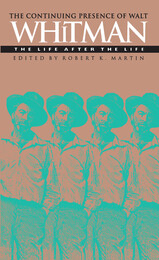
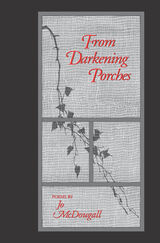
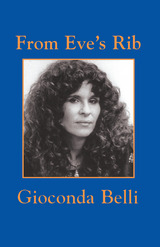
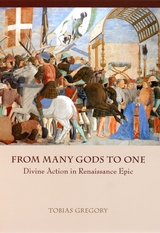
Epic poets of the Renaissance looked to emulate the poems of Greco-Roman antiquity, but doing so presented a dilemma: what to do about the gods? Divine intervention plays a major part in the epics of Homer and Virgil—indeed, quarrels within the family of Olympian gods are essential to the narrative structure of those poems—yet poets of the Renaissance recognized that the cantankerous Olympians could not be imitated too closely. The divine action of their classical models had to be transformed to accord with contemporary tastes and Christian belief.
From Many Gods to One offers the first comparative study of poetic approaches to the problem of epic divine action. Through readings of Petrarch, Vida, Ariosto, Tasso, and Milton, Tobias Gregorydescribes the narrative and ideological consequences of the epic’s turn from pagan to Christian. Drawing on scholarship in several disciplines—religious studies, classics, history, and philosophy, as well as literature—From Many Gods to One sheds new light on two subjects of enduring importance in Renaissance studies: the precarious balance between classical literary models and Christian religious norms and the role of religion in drawing lines between allies and others.
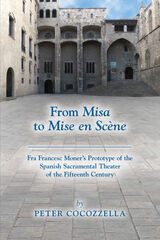
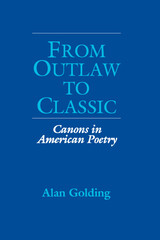
From Outlaw to Classic presents a sweeping history of the forces that have shaped, and continue to shape, the American poetry canon. Students, scholars, critics, and poets will welcome this enlightening and impressively documented book.
Recent writings by critics and theorists on literary canons have dealt almost exclusively with prose; Alan Golding shows that, like all canons, those of American poetry are characterized by conflict. Choosing a series of varied but representative instances, he analyzes battles and contentions among poets, anthologists, poetry magazine editors, and schools of thought in university English departments. The chapters:
• present a history of American poetry anthologies
• compare competing models of canon-formation, the aesthetic (poet-centered) and the institutional (critic-centered)
• discuss the influence of the New Critics, emphasizing their status as practicing poets, their anti-nationalist reading of American poetry, and the landmark textbook, Understanding Poetry by Cleanth Brooks and Robert Penn Warren
• examine the canonizing effects of an experimental “little magazine,” Origin
• trace how the Language poets address, in both their theory and their method, the canonizing institutions and canonical assumptions of the age.
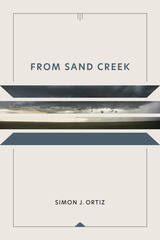
Originally published in a small-press edition, from Sand Creek makes a large statement about injustices done to Native peoples in the name of Manifest Destiny. It also makes poignant reference to the spread of that ambition in other parts of the world—notably in Vietnam—as Ortiz asks himself what it is to be an American, a U.S. citizen, and an Indian. Indian people have often felt they have had no part in history, Ortiz observes, and through his work he shows how they can come to terms with this feeling. He invites Indian people to examine the process they have experienced as victims, subjects, and expendable resources—and asks people of European heritage to consider the motives that drive their own history and create their own form of victimization.
Through the pages of this sobering work, Ortiz offers a new perspective on history and on America. Perhaps more important, he offers a breath of hope that our peoples might learn from each other:
This America
has been a burden
of steel and mad
death,
but, look now,
there are flowers
and new grass
and a spring wind
rising
from Sand Creek.
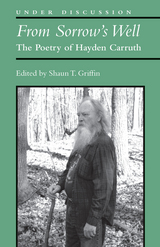
Hayden Carruth survived isolation, mental health problems, and long struggle with drink and smoke to produce a vision of modern poetry rooted in the New England tradition but entirely his own. Many feel his best poems emerged from the isolation of rural Vermont, and his poems often are concerned with rural images and metaphors reflecting the land and hardscrabble people around him. Together with his second love, jazz, Carruth’s rural experiences infuse his poems with engaging and provocative ideas even as they present sometimes stark topics.
This volume collects essays and poems from such notable contributors as Donald Hall, Marilyn Hacker, Adrienne Rich, Philip Booth, Matthew Miller, and Sascha Feinstein, among many others. The book’s sections concern the kinds of writings, and the values expressed in his writings, for which Carruth was most famous, including what editor Shaun T. Griffin calls “social utility,” jazz, his impoverished rural environment, and “innovation” in poetic form.
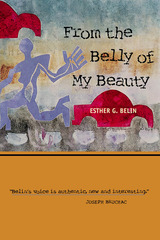
In this bold new collection of poems, Belin presents a startling vision of urban California—particularly Los Angeles—contrasted with Navajo life in the Four Corners region. She presents aspects of Diné life and history not normally seen by readers accustomed to accounts written by Navajos brought up on the reservation.
Her work reveals a difference in experience but a similarity in outlook. Belin's poems put familiar cultural forms in a new context, as Coyote "struts down east 14th / feeling good / looking good / feeling the brown." Her character Ruby dramatizes the gritty reality of a Native woman's life ("I laugh / sit / smoke a Virginia Slim / and talk to the spirits"). Her use of Diné language and poignant descriptions of family life will remind some of Joy Harjo's work, but with every turn of the page, readers will know that Belin is making her own mark on Native American literature.
From the Belly of My Beauty is also a ceremony of affirmation and renewal for those Native Americans affected by the Federal Indian Relocation Program of the 1950s and '60s, with its attempts to "assimilate" them into the American mainstream. They have survived by remembering who they were and where they came from. And they have survived so that they might bear witness, as Esther Belin so powerfully does. Belin holds American culture accountable for failing to treat its indigenous peoples with respect, but speaks for the ability of Native culture to survive and provide hope, even for mixed-blood or urban Indians. She is living proof that Native culture thrives wherever its people are found.
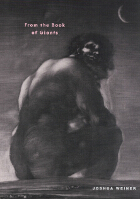
Song
for Thom Gunn
There is no east or west
in the wood you fear and seek,
stumbling past a gate of moss
and what you would not take.
And what you thought you had
(the Here that is no rest)
you make from it an aid
to form no east, no west.
No east. No west. No need
for given map or bell,
vehicle, screen, or speed.
Forget the house, forget the hill.
Taking its title from a set of writings found in the Dead Sea Scrolls, From the Book of Giants retunes the signal broadcast from these ancient fragments, transmitting a new sound in the shape of a Roman drain cover, in imitations of Dante and Martial, in the voice of a cricket and the hard-boiled American photographer Weegee, in elegies both public and personal, and in poems that range from the social speech of letters to the gnomic language of riddles. Out of poetry’s “complex of complaint and praise,” Joshua Weiner discovers, in one poem, his own complicity in Empire during his son’s baseball game at the White House. In another, an embroidered parrot sings a hermetic nursery rhyme to an infant after 9/11.
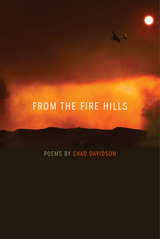
In From the Fire Hills, poet Chad Davidson shows us an Italy that is far from the romanticized notions of sun-drenched fields and self-discovery. Instead we see a maelstrom of chaos and contradiction, a place where the frenetic pace of modernity is locked in a daily struggle with recalcitrant history.
This autobiographical collection explores the myriad ways in which Italian culture survives its own parodies and evokes a modern ferocity that harkens back to Italy’s barbarian past. As the narrator, rendered vulnerable by language, embarks on his journey, lines of location, time, and perception blur. From the siren song of Dante’s grave to the heights of San Luca, from streets where policemen with Uzis tread a hair’s breadth away from the macabre remains of Capuchin monks, Davidson’s Italy is a study in contrast between the contemporary and the classical, the sacred and the profane. Within these poems sensual and savage revelations unfold, exposing new, uncanny, and often uncomfortable spaces to explore in this well-traveled realm of Western imagination.
Throughout the volume loom “the fire hills”: the scorched mountains of Sicily in summer; the memories of Italians living near the Gothic Line outside Bologna, where the Germans dug in and received heavy bombing at the close of World War II; even the wildfires igniting the San Gabriel foothills in southern California; all the way back to the burning city of Carthage in Virgil’s Aeneid. As the ash settles and the smoke clears, we realize that what we remember is often just remains, shells, and burned out wreckage, as if there were another type of memory.
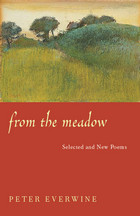
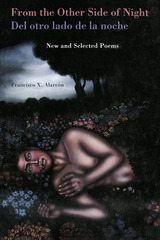
One of Chicano literature's premier poets, Alarcón has brought his luminous images to the page in such acclaimed volumes as Sonnets to Madness and Other Misfortunes and Snake Poems. Now he has assembled the best of his work from fifteen years, along with fourteen new poems, in a book that distills his magical sense of reality into a cup brimming with passion.
Raised in Guadalajara and now living in the San Francisco Bay area, Alarcón sees that " 'Mexican' / is not / a noun / or an / adjective / 'Mexican' / is a life / long / low-paying / job." Participating in a poetic tradition that goes back to the mystic Spanish poets of the sixteenth century, he brings us sonnets infused with romance and tenderness—and shorter poems that are direct and hard-hitting commentaries on American society, as he cries out for "a more godlike god," one "who spends nights / in houses / of ill repute / and gets up late / on Saturdays."
Alarcón invokes both the mysteries of Mesoamerica and the "otherness" of his gay identity. "My skin is dark / as the night / in this country / of noontime," he writes, "but my soul / is even darker / from all the light / I carry inside." In lyrical poems open to wide interpretation, he transcends ethnic concerns to address social, sexual, and historical issues of concern to all Americans. The fourteen new poems in From the Other Side of Night offer startling new commentaries on life and love, sex and AIDS.
Shifting effortlessly between English and Spanish—and even Nahuatl—Alarcón demonstrates the gift of language that has earned him both a wide readership and the admiration of fellow poets. With this book, he invites new readers to meet him where the darkness is palpable and the soul burns bright.
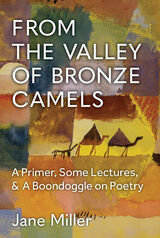
Jane Miller loves poetry. In these provocative and deeply insightful essays, she unpacks the work of giants like Adrienne Rich, Paul Celan, Marina Tsvetaeva, Osip Mandelstam, and Federico García Lorca alongside painters such as Caravaggio and Paul Klee, as well as ancient Chinese music and techniques of the contemporary poem. Miller explores the use of the question mark in the history of poetry and its function as a revelation of poetic voice. She considers the positive and negative aspects of surrealism on the contemporary poem, its anti-feminist origins in France, its contemporary usage, and the benefits of super-real images. Miller examines how identity politics might affect the imagination. She describes ancient Chinese musical instruments to show how their sounds resonate off/in American poems and on the aural integrity of the lyric poem. She interrogates the political implications of language and the degeneration and regeneration of words. Finally, in an essay about what she dares not say about poetry, she comes out against forms of surrealism, narrative, jargon, rhetoric, irony, and appropriation. This masterful work can be read as advice to a young writer, but it also invites us into the mind of a writer who has developed her craft through the course of a lifetime of writing, reading, and exploring the world, showing not only the ideas that influenced her—feminist, lesbian, and international works—but also how Miller has, in turn, influenced ideas.
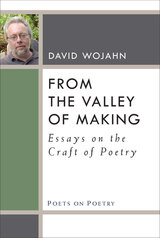
![front cover of from unincorporated territory [guma’]](https://www.bibliovault.org/thumbs/978-1-890650-91-9-thumb.jpg)
![front cover of from unincorporated territory [hacha]](https://www.bibliovault.org/thumbs/978-1-63243-049-6-thumb.jpg)
![front cover of from unincorporated territory [lukao]](https://www.bibliovault.org/thumbs/978-1-63243-041-0-thumb.jpg)
![front cover of from unincorporated territory [saina]](https://www.bibliovault.org/thumbs/978-1-890650-46-9-thumb.jpg)
![front cover of From Unincorporated Territory [åmot]](https://www.bibliovault.org/thumbs/978-1-63243-118-9-thumb.jpg)
This book is the fifth collection in Craig Santos Perez’s ongoing from unincorporated territory series about the history of his homeland, the western Pacific island of Guåhan (Guam), and the culture of his indigenous Chamoru people. “Åmot” is the Chamoru word for “medicine,” commonly referring to medicinal plants. Traditional Chamoru healers were known as yo’åmte; they gathered åmot in the jungle and recited chants and invocations of taotao’mona, or ancestral spirits, in the healing process.
Through experimental and visual poetry, Perez explores how storytelling can become a symbolic form of åmot, offering healing from the traumas of colonialism, militarism, migration, environmental injustice, and the death of elders.
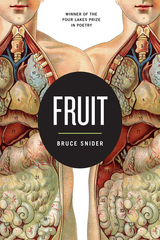
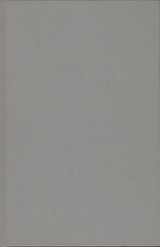

The leading Polish poet still residing in his native land, Zbigniew Herbert as not been the subject of a book-length study in English until now. Stanislaw Baranczak, himself a poet, critic, and translator, emigrated from Poland only in 1981, and is therefore eminently qualified to supply a politico-cultural context for Herbert while describing and analyzing the texts and themes of his poems.
Herbert's poetry is based on permanent confrontation--the confrontation of Western tradition with the experience of a "barbarian" from Eastern Europe, of the classical past with the modern era, of cultural myth with a practical, empirical point of view. Baranczak illustrates these oppositions by examining, first, the complex relations between "disinheritance" and "heritage" as they appear in Herbert's work on various structural levels, from symbolic key words to lyrical characters; second, the forms and functions of Herbert's "unmasking metaphor"; third, his uses of irony; fourth, his ethical system, which enables him to be both ironist and moralist. Baranczak pays special attention to irony as the most conspicuous feature of Herbert's poetic method.
A Fugitive from Utopia makes Herbert's poetic ideas fully accessible to the general reader, and will also be of interest to students of Polish literature, of East European culture and society, and of modern poetry. Those who have already encountered Herbert's poetry in one of the several translations into English currently available will welcome this lucid explication of his work.
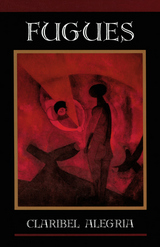
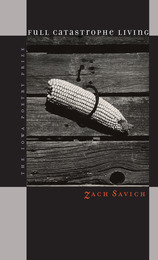
In meditations, songs, slapstick sequences, sonnets, narratives, and tightly carved fragments, Savich explores the conflicts between romance and reality, between inventing a new world and staying true to this one. Relishing both traditional and experimental poetics, he takes refreshing, ecumenical risks to show the “strange grace / of bells that ring with a rag’s polishing.” Like a Fourth of July band conductor guiding planes to land, his poetic wit alters what’s real. This book will change the ways that readers think about poetry, language’s expressive capacity, and the robust world around us.
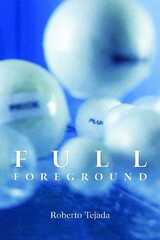
Poet Roberto Tejada uses lyrical poems to explore and give a voice to the troubles of global citizenship, US–Mexico relations, Latino identity, and the political emotion of queer sexualities. His collection provides a holistic ground-level view of pivotal world events from the mid 1990s to a more recent present.
Tejada’s innovative work dramatically widens the scope of Latina/o literature, showing us exactly what it can accomplish. The poems move very much like a three-act play, in which the first act is one of origins; the second, a staging of desire; and the third, a symbiosis. These acts magnify one another when unified. Each poem within the collection positions itself within the avant-garde, in which the artful use of language aims to dazzle, surprise, and enliven. The poems dance by, preserving a tension between hurry and delay, momentum and stasis, and every line is like a newly launched firecracker, sending out startling patterns of spark and flare.
Tejada’s exuberant language stretches the limits of selfhood and the way it is represented in poetry. He illuminates the tangled webs that are woven when identities are linked to sexuality, nationality, privilege, and temporality. The concerns and obsessions voiced here turn the construction of desire on its head, forcing us to ask ourselves what is worthy of our attentions.
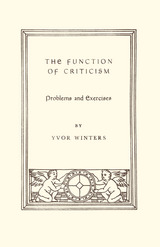
The Function of Criticism: Problems and Exercises brings together five essays by Yvor Winters: “Problems for the Modern Critic of Literature,” “The Audible Reading of Poetry,” “The Poetry of Gerard Manley Hopkins,” “Robert Frost, Or the Spiritual Drifter as Poet,” and “English Literature in the Sixteenth Century.”
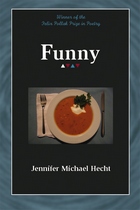

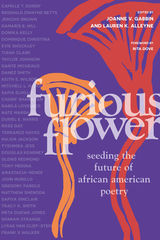
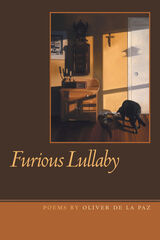
Furious Lullaby is both a celebration of and a eulogy to the body in the twenty-first century. The collection, which examines the larger concepts of salvation and temptation in a world of blossoming strife, includes a series of aubades – dramatic poems culminating with the separation of lovers at dawn. The lovers suffer a metaphysical crisis, seeking to know what is good, what is evil, and how to truly know the difference. Knowing, however, invites the terrible into their world. The Devil, a seductive trickster, haunts the landscape as a voice who dares each inquisitor to learn about mortality, morality, the beautiful, and the unspeakable through direct experience. Furious Lullaby offers a departure from the lighter prose poetry of de la Paz’s Names above Houses and preserves the author’s concern with the nature of human grace.
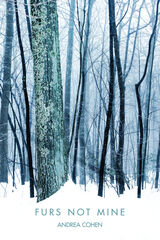
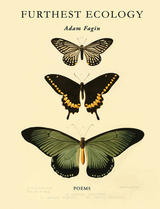


—Cyrus Cassells
READERS
Browse our collection.
PUBLISHERS
See BiblioVault's publisher services.
STUDENT SERVICES
Files for college accessibility offices.
UChicago Accessibility Resources
home | accessibility | search | about | contact us
BiblioVault ® 2001 - 2024
The University of Chicago Press









